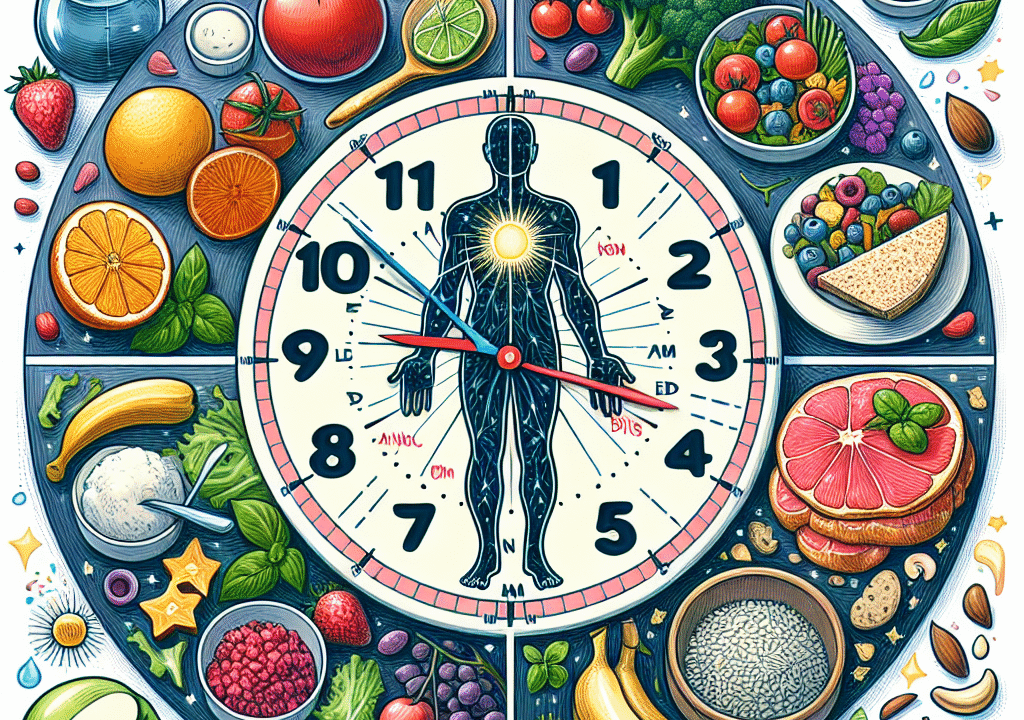
Diet Without Dieting: The Psychology Shift That Finally Ends Yo-Yo Weight Changes
Why the Diet Rollercoaster Never Ends
If you’ve ever been trapped in the exhausting cycle of losing weight only to gain it back, you’re not alone. In fact, approximately 80% of people who lose weight through traditional dieting regain it within a year, according to the National Institutes of Health. The reason runs deeper than calorie counting or carbs—it’s about your mindset.
Instead of jumping from one fad to another, imagine changing how you think about food, your body, and health itself. This is the foundation of a new, lasting approach: understanding the psychology behind sustainable weight management. It’s time to stop dieting and start thinking differently.
Why Diets Fail—And It’s Not Your Fault
We’ve been conditioned to believe that if a diet fails, it’s because we’re undisciplined or lack motivation. In reality, the issue lies within the structure of most diets. Restriction-focused meal plans activate a “scarcity mindset,” which creates psychological stress and results in intense food cravings and overeating.
The truth is, many diets are built for short-term changes—not long-term success. They rely on rigid rules about what, when, and how much to eat, instead of teaching you how to tune into your own body’s needs. When life gets hectic or pressure builds, these rules break down—causing the weight to return. This isn’t a personal failing. It’s a systemic flaw.
The Psychology of a Better Relationship With Food
To truly break away from the cycle of yo-yo dieting and emotional eating, you must reshape your relationship with food. This means letting go of the idea that foods are “good” or “bad,” and instead focusing on hunger, fullness, and satisfaction.
“This shift from control to connection helps people eat in ways that align with their values and physical needs,” says registered dietitian Evelyn Tribole, co-creator of intuitive eating.
For example, if you crave chocolate, allow yourself to enjoy it mindfully without guilt. This reduces the intensity of cravings and helps prevent bingeing. Over time, this approach builds a healthier bond with food—one based on trust, not tension.
Reclaim Body Trust With Intuitive Eating
Your body is incredibly wise—it already knows what it needs. Intuitive eating invites you to listen to your hunger and fullness cues instead of following restrictive rules. By eating to nurture your physical needs—not to suppress emotions—you begin to develop real, sustainable habits.
Studies show that women who practiced intuitive eating had better psychological well-being and lower body mass indexes than those who followed conventional diets. One way to begin: before eating, pause and ask yourself, “Am I physically hungry?” or “What am I feeling emotionally right now?” These moments of mindfulness help re-establish body trust and self-awareness.
Understanding Emotional Eating
Food brings comfort—and that’s okay. But when emotional eating becomes your default response to stress, boredom, sadness, or fatigue, it masks your true emotional needs.
According to the American Psychological Association, over 38% of adults admit to overeating or choosing unhealthy foods to manage stress. The key isn’t avoiding comfort entirely, but developing alternative tools that serve your emotional well-being.
Instead of reaching for snacks, try journaling, stretching, walking, or calling a friend. These strategies address the real emotional triggers behind your urge to eat, leading to more lasting emotional resilience.
Sustainable Health Starts With Tiny Habits
Massive lifestyle overhauls rarely stick. What does? Building small, consistent habits that naturally support your well-being. Rather than following elaborate diet rules, focus on simple, sustainable actions that deliver results over time.
Consider starting with:
– Drinking a full glass of water before each meal
– Adding an extra serving of vegetables daily
– Taking a 10-minute walk after dinner
– Practicing daily gratitude for one thing your body does well
These small steps don’t depend on sheer willpower—they work by shaping your environment and rewiring your brain to prefer healthier choices. Research supports this: habit-based approaches lead to longer-lasting weight and health improvements than restrictive diets.
Redefining What “Success” Really Looks Like
Diet culture promotes the false belief that success is defined by a number on the scale. But real health is much broader. Non-scale victories—like more energy, better sleep, balanced moods, and less food anxiety—are the real markers of well-being.
For example:
– You sleep soundly and wake up refreshed
– You make food choices confidently, without inner conflict
– You enjoy meals—including desserts—without guilt
– You have steady energy and emotional balance throughout the day
As eating disorder specialist Christy Harrison points out, “Weight is not a behavior. And behaviors—not body size—are what impact health.” Focusing on how you feel, rather than what you weigh, builds confidence and encourages healthier habits that last.
Nourishment Over Numbers: The Final Shift
Choosing to stop dieting doesn’t mean giving up on your health goals. On the contrary, embracing psychological freedom from dieting helps you align your eating habits with your body’s natural signals and your overall well-being.
This path encourages nourishment, connection, and self-respect—not guilt, shame, or numbers. The next time you’re tempted to try a new restrictive plan, ask yourself, “What if I already have the wisdom to be healthy—if I just begin listening inward?”
You may find that the best health plan isn’t a diet at all, but a deeper relationship with yourself.
Explore More Wellness Support
Ready to discover practical tools for emotional resilience and physical health? Visit edrugstore.com for expert-backed advice, wellness tips, and guides to help you thrive—mind, body, and soul.
References
– American Psychological Association. (2021). Stress in America: Stress and Health Behaviors. https://www.apa.org/news/press/releases/stress/2021
– Tribole, E., & Resch, E. (2020). Intuitive Eating (4th ed.). St. Martin’s Essentials.
– Lally, P., et al. (2010). How are habits formed: Modeling habit formation in the real world. European Journal of Social Psychology.
– National Institutes of Health. (2020). Long-term weight loss maintenance.
– Satter, E. (2018). Eating Competence: A Nutritionist’s Insight into Food Psychology.
– Van Dyke, N., & Drinkwater, E. J. (2013). Relationships between intuitive eating and health indicators: Literature review. Public Health Nutrition.


